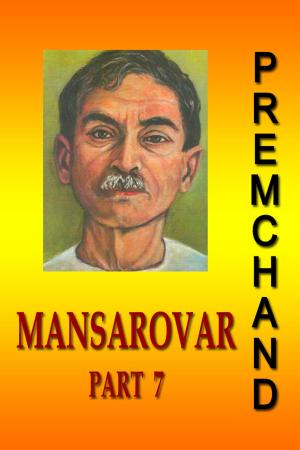| Author: | William Dean Howells | ISBN: | 9781312018099 |
| Publisher: | Sai ePublications | Publication: | January 5, 2017 |
| Imprint: | Sai ePublications | Language: | English |
| Author: | William Dean Howells |
| ISBN: | 9781312018099 |
| Publisher: | Sai ePublications |
| Publication: | January 5, 2017 |
| Imprint: | Sai ePublications |
| Language: | English |
If I spoke with Altrurian breadth of the way New-Yorkers live, my dear Cyril, I should begin by saying that the New-Yorkers did not live at all. But outside of our happy country one learns to distinguish, and to allow that there are several degrees of living, all indeed hateful to us, if we knew them, and yet none without some saving grace in it. You would say that in conditions where men were embattled against one another by the greed and the envy and the ambition which these conditions perpetually appeal to here, there could be no grace in life; but we must remember that men have always been better than their conditions, and that otherwise they would have remained savages without the instinct or the wish to advance. Indeed, our own state is testimony of a potential civility in all states, which we must keep in mind when we judge the peoples of the plutocratic world, and especially the American people, who are above all others the devotees and exemplars of the plutocratic ideal, without limitation by any aristocracy, theocracy, or monarchy. They are purely commercial, and the thing that cannot be bought and sold has logically no place in their life. But life is not logical outside of Altruria; we are the only people in the world, my dear Cyril, who are privileged to live reasonably; and again I say we must put by our own criterions if we wish to understand the Americans, or to recognize that measure of loveliness which their warped and stunted and perverted lives certainly show, in spite of theory and in spite of conscience, even. I can make this clear to you, I think, by a single instance, say that of the American who sees a case of distress, and longs to relieve it. If he is rich, he can give relief with a good conscience, except for the harm that may come to his beneficiary from being helped; but if he is not rich, or not finally rich, and especially if he has a family dependent upon him, he cannot give in anything like the measure Christ bade us give without wronging those dear to him, immediately or remotely. That is to say, in conditions which oblige every man to look out for himself, a man cannot be a Christian without remorse; he cannot do a generous action without self-reproach; he cannot be nobly unselfish without the fear of being a fool. You would think that this predicament must deprave, and so without doubt it does; and yet it is not wholly depraving. It often has its effect in character of a rare and pathetic sublimity; and many Americans take all the cruel risks of doing good, reckless of the evil that may befall them, and defiant of the upbraidings of their own hearts. This is something that we Altrurians can scarcely understand: it is like the munificence of a savage who has killed a deer and shares it with his starving tribesmen, forgetful of the hungering little ones who wait his return from the chase with food; for life in plutocratic countries is still a chase, and the game is wary and sparse, as the terrible average of failures witnesses.
Of course, I do not mean that Americans may not give at all without sensible risk, or that giving among them is always followed by a logical regret; but, as I said, life with them is in no wise logical. They even applaud one another for their charities, which they measure by the amount given, rather than by the love that goes with the giving. The widow's mite has little credit with them, but the rich man's million has an acclaim that reverberates through their newspapers long after his gift is made. It is only the poor in America who do charity as we do, by giving help where it is needed; the Americans are mostly too busy, if they are at all prosperous, to give anything but money; and the more money they give, the more charitable they esteem themselves. From time to time some man with twenty or thirty millions gives one of them away, usually to a public institution of some sort, where it will have no effect with the people who are underpaid for their work or cannot get work; and then his deed is famed throughout the continent as a thing really beyond praise. Yet any one who thinks about it must know that he never earned the millions he kept, or the millions he gave, but somehow made them from the labor of others; that, with all the wealth left him, he cannot miss the fortune he lavishes, any more than if the check which conveyed it were a withered leaf, and not in any wise so much as an ordinary working-man might feel the bestowal of a postage-stamp.
But in this study of the plutocratic mind, always so fascinating to me, I am getting altogether away from what I meant to tell you. I meant to tell you not how Americans live in the spirit, illogically, blindly, and blunderingly, but how they live in the body, and more especially how they house themselves in this city of New York. A great many of them do not house themselves at all, but that is a class which we cannot now consider, and I will speak only of those who have some sort of a roof over their heads.
If I spoke with Altrurian breadth of the way New-Yorkers live, my dear Cyril, I should begin by saying that the New-Yorkers did not live at all. But outside of our happy country one learns to distinguish, and to allow that there are several degrees of living, all indeed hateful to us, if we knew them, and yet none without some saving grace in it. You would say that in conditions where men were embattled against one another by the greed and the envy and the ambition which these conditions perpetually appeal to here, there could be no grace in life; but we must remember that men have always been better than their conditions, and that otherwise they would have remained savages without the instinct or the wish to advance. Indeed, our own state is testimony of a potential civility in all states, which we must keep in mind when we judge the peoples of the plutocratic world, and especially the American people, who are above all others the devotees and exemplars of the plutocratic ideal, without limitation by any aristocracy, theocracy, or monarchy. They are purely commercial, and the thing that cannot be bought and sold has logically no place in their life. But life is not logical outside of Altruria; we are the only people in the world, my dear Cyril, who are privileged to live reasonably; and again I say we must put by our own criterions if we wish to understand the Americans, or to recognize that measure of loveliness which their warped and stunted and perverted lives certainly show, in spite of theory and in spite of conscience, even. I can make this clear to you, I think, by a single instance, say that of the American who sees a case of distress, and longs to relieve it. If he is rich, he can give relief with a good conscience, except for the harm that may come to his beneficiary from being helped; but if he is not rich, or not finally rich, and especially if he has a family dependent upon him, he cannot give in anything like the measure Christ bade us give without wronging those dear to him, immediately or remotely. That is to say, in conditions which oblige every man to look out for himself, a man cannot be a Christian without remorse; he cannot do a generous action without self-reproach; he cannot be nobly unselfish without the fear of being a fool. You would think that this predicament must deprave, and so without doubt it does; and yet it is not wholly depraving. It often has its effect in character of a rare and pathetic sublimity; and many Americans take all the cruel risks of doing good, reckless of the evil that may befall them, and defiant of the upbraidings of their own hearts. This is something that we Altrurians can scarcely understand: it is like the munificence of a savage who has killed a deer and shares it with his starving tribesmen, forgetful of the hungering little ones who wait his return from the chase with food; for life in plutocratic countries is still a chase, and the game is wary and sparse, as the terrible average of failures witnesses.
Of course, I do not mean that Americans may not give at all without sensible risk, or that giving among them is always followed by a logical regret; but, as I said, life with them is in no wise logical. They even applaud one another for their charities, which they measure by the amount given, rather than by the love that goes with the giving. The widow's mite has little credit with them, but the rich man's million has an acclaim that reverberates through their newspapers long after his gift is made. It is only the poor in America who do charity as we do, by giving help where it is needed; the Americans are mostly too busy, if they are at all prosperous, to give anything but money; and the more money they give, the more charitable they esteem themselves. From time to time some man with twenty or thirty millions gives one of them away, usually to a public institution of some sort, where it will have no effect with the people who are underpaid for their work or cannot get work; and then his deed is famed throughout the continent as a thing really beyond praise. Yet any one who thinks about it must know that he never earned the millions he kept, or the millions he gave, but somehow made them from the labor of others; that, with all the wealth left him, he cannot miss the fortune he lavishes, any more than if the check which conveyed it were a withered leaf, and not in any wise so much as an ordinary working-man might feel the bestowal of a postage-stamp.
But in this study of the plutocratic mind, always so fascinating to me, I am getting altogether away from what I meant to tell you. I meant to tell you not how Americans live in the spirit, illogically, blindly, and blunderingly, but how they live in the body, and more especially how they house themselves in this city of New York. A great many of them do not house themselves at all, but that is a class which we cannot now consider, and I will speak only of those who have some sort of a roof over their heads.















